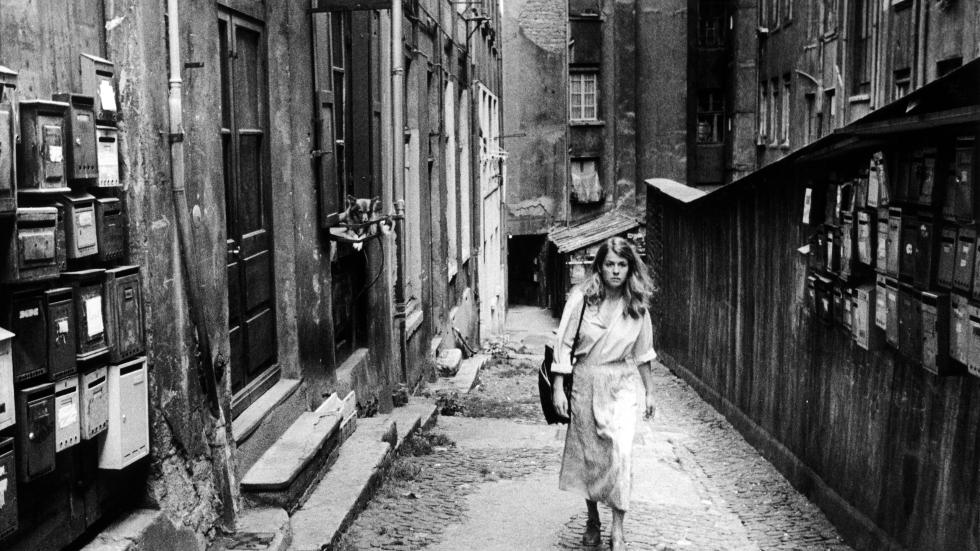BLIND SPOT
O.V in German subtitled in Spanish and English

The first feature length film by the German Claudia von Alemann (a clear precursor of Schanelec) brilliantly combines the personal and the political in this film in which a young historian, who is married and has a young daughter, leaves her family to follow in the footsteps of the 19th century activist and feminist pioneer Flora Tristan. The film is thus a journey towards the reconstruction of historical memory from a female perspective, a sensory voyage through the life of Tristan, who travelled through the industrial regions of France fighting for women's emancipation, the "proletarian of the proletarian". It is also a path to self-discovery and liberation for the protagonist, which we will see in a brilliant restoration done in 2018 by the Deutsche Kinemathek.
Direction: Claudia von Alemann
Script: Claudia von Alemann
Cinematography: Hille Sagel
Editing: Monique Dartonne
Music: Frank Wolff
Sound: Auguste Galli, Alain Champelouvier, Daniel Deshays
Cast: Rebecca Pauly, Denise Péron, Jean Badin, Sarah Stern, Maurice Garden, Pierre-Emile Legrand
Production: Claudia von Alemann
Production Company: DEUTSCHE KINEMATHEK
INTO ANOTHER HISTORY OF EUROPEAN CINEMA
History, we know, is neither neutral nor incontestable: depending on who tells it and how. When it comes to the history of European cinema, it is increasingly necessary to re-evaluate the dominant canon that guides it, bringing to the forefront works both remarkable and often undervalued. For this reason, a new space has been launched to offer a new way of contemplating the continent's film legacy each year, entitled "Into Another History of European Cinema". The section is set up as a forum for reflection and (re)discovery, paying significant attention to pioneering works of feminism, class consciousness and the new types of cinema that have shaken the world since the sixties (some of them censored or attacked by the establishment), as well as to little-known works by key filmmakers. Eight films that illuminate and reveal another narrative of history will be shown for the first time in Spain in their recently restored copies, opening the debate on archiving works, and the role of festivals and film libraries in the reconsideration of the past.


